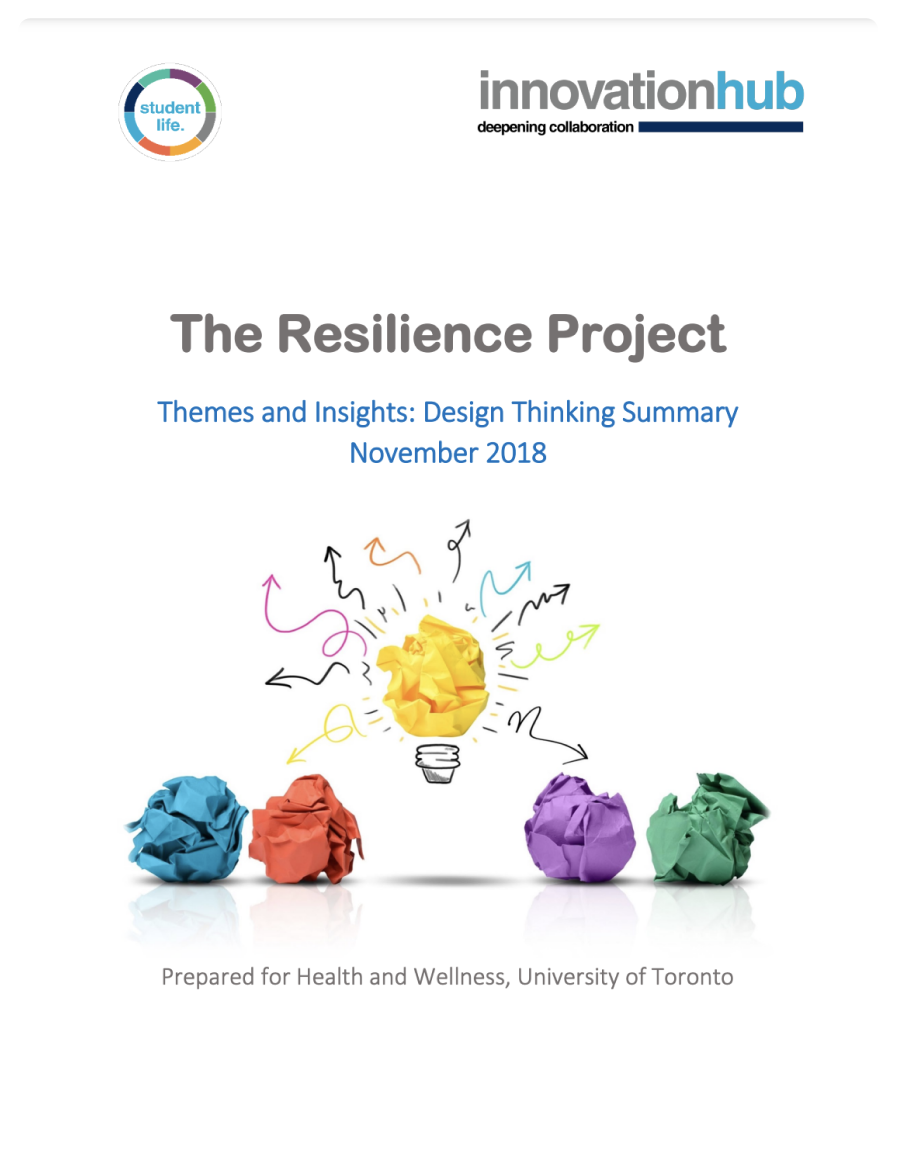Resilience Project
From 2018-2019, the Division of Student Life has been reviewing literature concerning resilience in students to inform the creation of material to foster resilience in students and to improve program design. In conjunction with this ongoing work, the Innovation Hub undertook a design thinking project utilizing long-form empathy interviews with students on the topic of resilience.
Fall/Winter 2018-2019
What does resilience look like at U of T and how is it supported?
We found that resilience appears as self-management skills and critical self-reflection, both of which can be honed through participation in much of the extra-curricular programming available on campus. Students’ stories formed ‘personas,’ which are used in the design thinking process to understand someone’s needs and experiences. This helped guide the ideation process and ensured that the end product meets student needs.
KEY FINDINGS
Speaking with students from a variety of backgrounds, our team determined that resilience appears as self-management skills and critical self-reflection, both of which can be honed through participation in much of the extra-curricular programming available on campus. Themes to support this finding were:
- Managing the Self: In challenging circumstances, students described a series of practices or techniques for self-management. These are less concerned with productivity, explicitly, than self-reflection and informed decision-making within a process of personal discovery.
- Self-Advocacy: For students, demonstrating resilience means speaking or acting on behalf of their personal, emotional, and physical needs.
- Involvement as Resiliency: In difficult times, many students find stability and meaning in their engagement in co-curricular social activities and/or academic pursuits.
